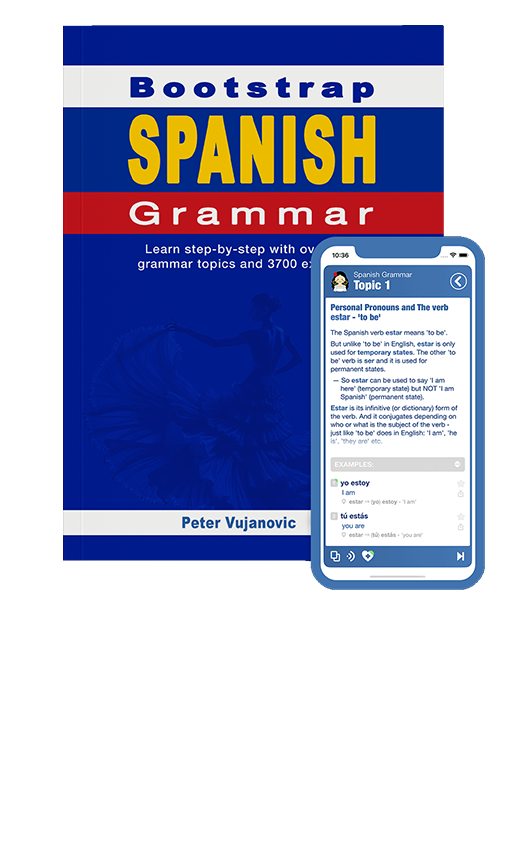Spanish grammar - The various uses of the verb llegar - 'to arrive' |
|||
|
|||
The verb llegar is one of the most common Spanish verbs. It is a regular -AR verb. Besides the obvious meaning of 'to arrive,' it has several other meanings and uses: • As mentioned, it can mean 'to arrive' or 'to reach a destina-tion'. • It can also mean 'to be coming' or 'to be on one's way' in a present continuous sense even when used in the simple present. • It can mean 'to happen' or 'to occur'. -- This can be with a person as the subject, often with an indi-rect pronoun, e.g., 'me llegó' ('it happened to me'). -- Or it can be impersonal in the sense of 'it happened that...' or 'there was...'. • With the preposition a, it means 'to reach', 'to achieve', or 'to get to' - both literally and figuratively. • With the preposition a plus an infinitive, it means 'to manage to do (something)' or 'to succeed in doing (something)'. |
| Examples: | |
|
Llegué temprano a la reunión.
(I) arrived early to the meeting.
|
|
|
Estamos llegando a la casa de Juan.
(We) are arriving at Juan's house.
|
|
|
Me llegó una carta inesperada.
An unexpected letter happened to arrive to me.
|
|
|
Llegaron a un acuerdo.
They reached an agreement.
|
|
|
¿Llegaste a entender el problema?
Did (you, familiar) manage to understand the problem?
|
|
|
El tren llegará pronto.
The train will be arriving soon.
|
|
|
¿Llegaste a tiempo?
Did (you, familiar) arrive on time?
|
|
|
La noticia llegó a toda la ciudad.
The news reached the entire city.
|
|
|
Finalmente llegaron a la cumbre.
They finally reached the summit.
|
|
|
Lo que pasó me llegó al alma.
What happened reached my soul.
|
|
|
Llega el invierno.
Winter is coming.
|
|
|
No llegué a tiempo para la película.
(I) did not arrive on time for the movie.
|
|
|
Nos llegó la oportunidad de viajar.
The opportunity to travel came to us.
|
|
|
Llegamos a ser buenos amigos.
(We) (in the end) became good friends.
|
|
|
Él llegará a ser un gran médico.
He will become a great doctor.
|
|
|
¿Te llegó el mensaje?
Did the message reach (you, familiar)?
|
|
|
Llegó un momento de tranquilidad.
A moment of tranquility happened.
|
|
|
No llegué a entender por qué se fue.
(I) did not manage to understand why he left.
|
|
|
Se llega a la verdad con paciencia.
One reaches the truth with patience.
|
|
|
Llegó un momento de silencio.
There came a moment of silence.
|
|
|
Llegaron muchas quejas de los vecinos.
There were many complaints from the neighbors.
|
|
|
Llegó una tormenta inesperada.
There arrived an unexpected storm. |
|
|
Llegó la hora de la verdad.
The moment of truth (has) arrived. |
|
|
Llegaron rumores sobre el evento.
There were rumors about the event.
|
|
 |
|


 In this case
In this case 
